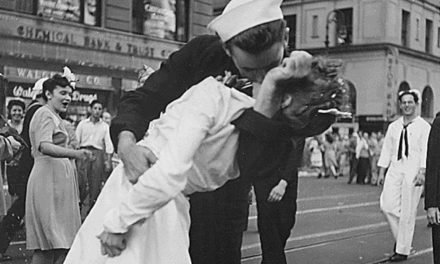
Proposition: The 2024 Delegation of DEI Practitioners and Strategists hereby propose that current and future “Election Years” be renamed as “Groundhog Days,” henceforth and forevermore!
I only mildly jest when I refer to voting as a sacred process in our collective national experience. This year’s context is thick with anticipation. There are constant ecological shifts in equity and inclusion work around us. A U.S. presidential election, as well as city- and state-elected offices, will shift our day-to-day lived experiences as individuals, organizations, and businesses. Even as we are a couple of years removed from a pandemic that affected lives around the world, global events like elections in at least 64 countries plus the European Union will directly affect the lives of about 49% of people in the world. Add to that the excitement (and controversy) of the Paris 2024 Summer Olympics that will still put the happenings of the world on display for 24 hours, seven days a week, for almost a month (not including pre- and post-coverage). It only makes sense that community, city, state, national, and global happenings will affect human beings before, during, and after work.
U.S. elections happen every two to four years, so you may ask, “Why does 2024 feel like such a shift from previous generations?” Well, it is. If we ask older and more experienced folks in our intergenerational workplaces about how external changes affected their work, many may say — “It didn’t. We compartmentalized it. We left that stuff at the door, worked, and picked it back up after we clocked out.”
Not so for younger generations in the workplace — especially when clocking in and out is sometimes symbolic and rarely concrete boundaries to work. Younger generations see fewer compartments and more blending of work and life. For example, Gen Z workers define equity in the workplace as a respect for individuality, valuing every voice, and creating a sense of belonging for everyone. Such perspective is so important to this group generally that about half of Gen Z workers would literally leave a job if they perceived a lack of equity (Handshake, 2023).
It goes without saying that this perspective of being more “human” in our workplaces has evolved over the years, but I’m explicitly saying it. In an intergenerational workplace: expectations for equity, inclusion, and belonging have evolved. We find this evolution squarely in the center of an election year when there are increasing threats to actively remove aspects of humanity from the workplace as seen in anti-DEI, anti-queer/trans, and anti-intellectual activities like book banning across the country.
After 27 years of doing this work, my questions have not changed:
Why are we acting as if elections don’t happen every two to four years like clockwork?
Why aren’t we proactive in our DEI approaches?
Within the workplace, there will be undercurrents of conversations that center identity, power, and how those two elements are acknowledged, ignored, or shifted based on the results of this election year and global experiences. Depending on the current events and already-existing tensions, explicit situations and conversations will occur. How in the world can even the best-intentioned workplaces be ready for these volatile experiences as they spiral around us in real time?
In other words, as my 98-year-old grandmother would say, “Why aren’t we ‘sitting on ready’?” Based on my experience, there are at least five things organizations should do in order to be as ready as possible for this (and subsequent election cycles):
- Pay attention to local, national, and international news. When critical incidents happen like loss of life due to identity and hate crimes, natural and unnatural disasters, wars, and other events, it is very difficult for employees to compartmentalize their human experience of those events from their daily work. For some, those events directly affect their avowed identity groups, leaving them to think, “That could have been me, my family, my friends, or loved ones.” Others may be experiencing ostracism and other forms of oppression related to world news, even as they are simply trying to get to work in one piece, ready to put 100% into their day. Workplace leaders cannot respond appropriately if they are unaware of what’s going on in the world. Set up your news alerts, listen to current events on the way to work, or take a quick scroll across trusted social media outlets to keep your awareness high.
- Update calendars. Of course, there are unanticipated world events and other events that happen regularly. Organizations often pay attention to business calendars including major projects, programs, and the fiscal year but add DEI calendars to this work. Pay attention to how business calendars, identity celebrations, commemorations, and holidays overlap as your organization continues to keep the momentum of your existing work.
- Get Mental Health First Aid training. Now, please do not say that Shaunna said, “Get up from your desk, run off, and become a psychologist, psychiatrist, or therapist!” There are trained experts who already do this well. (We need more diversity in this area, but that’s another post for another day!) What I am urging your organization to do now is to bring a Mental Health First Aid (MHFA) training to your organization, make it mandatory for supervisors and people managers, and provide incentives for other folks to participate. Similar to CPR training, MHFA helps those in the workforce to identify common signs and symptoms of mental health challenges, substance use challenges, how to engage with someone who is in crisis, and how to get that person connect to a professional for help. These are often great needs for those who are feeling oppression, ostracism, and other forms of harm both at work and outside of work.
- Engage in active learning. Back in 2020 at the height of the pandemic and U.S. social unrest, The Washington Post published a provocative article, “When black people are in pain, white people just join book clubs” by Tre Johnson. That brother wasn’t wrong; yet no one said to stop reading and learning. We’re simply saying that hiding out in a book club is not enough. What most organizations have not done — beyond forming the book clubs — is creating ERGs and other strategy spaces that allow people to turn their learning into action. Read the book. Watch the TED Talk. Read the article. Have the conversation. But as our organizations do this work, the learning must translate into a tangible, measurable answer to the question, “So what?” Now that you know better, how might we do better?
- Invest in facilitated dialogue. Every once in a while, I find a daring organization that invited discussion around tough topics like the murders of Freddie Gray, George Floyd, Breonna Taylor and others. Yet, they get themselves into hot water when they casually delegate someone to convene the conversation who may not be prepared for the unpredictable directions conversation may go. Hire a skilled dialogue facilitator who is equipped for such conversations, prioritizes deeper understanding, deprioritizes debate, and ensures that working relationships are preserved or strengthened in the process.
Like any election year, it’s going to be a bumpy ride. Good thing DEI practitioners and strategists have seatbelts for everyone’s use. Let’s urgently install one or more of these strategic tools in place to ensure our human resources actually feel human at work.



















